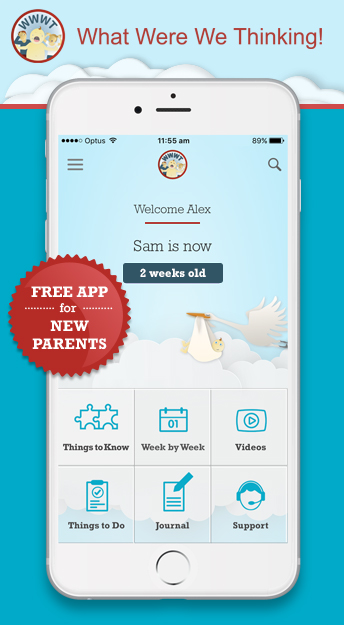Speaking up for yourself when you have a baby
By Heather Rowe
The WWWT blog has recently been exploring how parents can make harsh judgements about each other’s choices and experiences.
The social phenomenon known as “Mummy (or Daddy) shaming” describes the negative comments from others about ways parents interact with their children and how they spend their time. This unhelpful practice undermines parents’ confidence. It turns parenting into a kind of contest where there are winners and losers are decided on the basis of someone’s personal opinion. It denies the fact that there is no one right way to parent. Everyone is different from everyone else: mothers are different, fathers are different and every baby is different. A host of factors influence the way people bring up their families: parents’ own experiences of being cared for, their cultural background, the values of their social circle and the realities of earning a living (to name a few). The task of parenting is demanding and complex. Families thrive when parents have the support of society and plenty of praise for the hard work they are doing to bring up the next generation.
Another version of this, “baby bragging",is broadcasting how wonderful (natural, pain relief free, all going to plan) someone’s birthing experience was, often with an underlying negative judgment about someone else who did not experience an “ideal birth”. The truth is that birth is a process over which we have little control. A parent’s experience of birth often is not what they had imagined and is frequently a matter of accepting medical recommendations to protect the wellbeing of the mother and baby. Another form of baby bragging is the ‘competition’ among groups of women about babies “sleeping through the night” or reaching developmental milestones. “Sleeping through the night” means different things to different people and babies reach milestones in their own time. Women often say that this competition makes them worry about their baby and themselves. They yearn for other mothers to be more honest about themselves and supportive of each other’s difficulties.
In these circumstances it can be helpful to develop the skills to speak up for yourself. This can feel strange because being a mother for the first time often feels as though you don’t have much authority because you have so much to learn. However, speaking up is an important way to build your confidence and it gets easier with practice. The trick is to make your feelings known politely without getting upset or angry. An assertive person states how they feel in a clear and measured way and is respectful of others. Being assertive is often most difficult with strangers or in situations where you are uncomfortable. Having some prepared responses that you have practised and can use if a situation arises is really helpful. For example, if some says, “you’re too young to have a baby”, you might say, “it felt like the right time for me and I am very happy to be a mother/father”? If someone says, “I didn’t use any pain-relief during my birth, it was totally natural”, you could respond with, “both my baby and I were healthy and happy”.
Assertive people have better emotional wellbeing and so it is a very useful tool to practise. The WWWT worksheet “Speaking Up For Yourself” has more great tips and strategies for being assertive.
Heather is Senior Research Fellow with expertise in women's health research and health promotion practice. She translates expert knowledge into mental health promotion programs for women and their families. She has a special research interest in using technologies to reach diverse groups of women and their families during the childbearing year and at other phases of life.
Posted in: A new reality Baby 0-4 weeks Late pregnancy Parenting Experts Your needs









